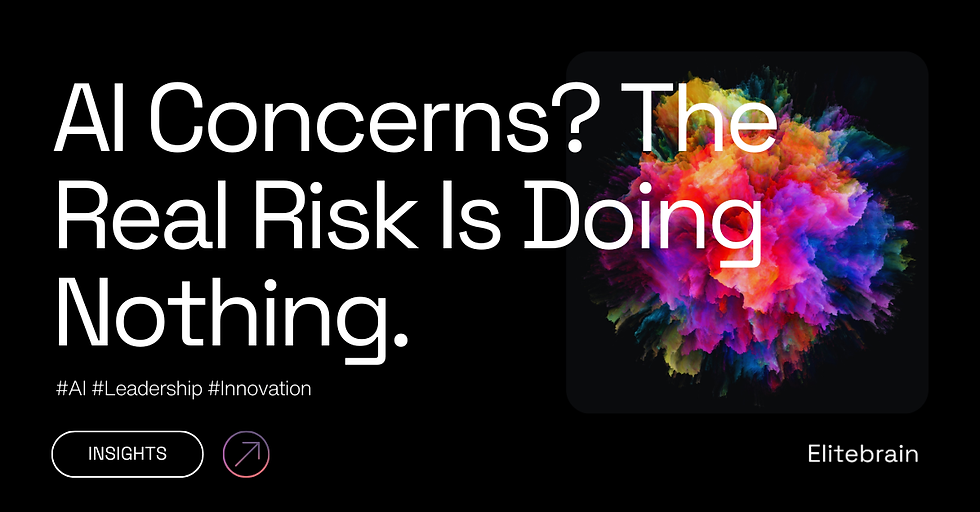Big Companies Will Shrink. Small Ones Will Thrive.
- Delphine Seitiée
- Jan 6
- 2 min read
Updated: Apr 21
A recent study highlights a significant power shift in organisational development (OD): small organisations demonstrate 2.5 times higher strategic AI readiness compared to medium and large organisations.
This suggests a future where agility and adaptability, rather than sheer size, determine success. For large corporations, this could mean significant restructuring to remain competitive in an increasingly AI-driven world.
The Strategic AI Advantage
Strategic AI readiness involves an organisation's preparedness to leverage AI for OD, encompassing strategic clarity, execution capability, and a holistic, organisation-wide approach. Small organisations' lead in AI readiness indicates their advantageous position to capitalise on AI's benefits, such as :
Streamlined processes: AI can automate routine tasks, enabling HR and L&D teams to concentrate on strategic initiatives.
Data-driven insights: AI facilitates quicker, deeper understanding of organisational strengths and weaknesses, leading to informed decisions.
Personalised development: AI can pinpoint individual needs and deliver tailored coaching, enhancing program quality and learning results.
Improved talent acquisition: AI streamlines recruitment and boosts employee engagement.
Large Organisations: An Impending Restructuring
AI is a fundamental shift in how organisations function. Large organisations, often encumbered by legacy systems and bureaucratic processes, may struggle to adapt swiftly.
This could trigger:
Decentralisation: AI empowers smaller teams, potentially rendering large, hierarchical structures obsolete.
Downsizing: Automation and AI-driven efficiency could lead to job losses, particularly in administrative roles.
Focus on core competencies: Organisations may need to divest non-essential functions, outsourcing them to specialised AI-driven providers.
Action Imperatives for Leaders
The study reveals a misalignment between CxOs and HR/L&D leaders concerning AI priorities. To remain competitive, organisations must embrace a holistic AI integration strategy, addressing critical barriers such as:
Lack of expertise: Investing in training to equip HR/L&D professionals with the skills to leverage AI effectively.
Unclear ROI: Defining clear AI use cases and demonstrating their value through improved metrics and learning outcomes.
Technology concerns: Addressing concerns about privacy, security, and AI reliability to foster trust and encourage adoption.
The future of OD is undeniably linked to AI. While the prospect of large organisations shrinking may be unsettling, it presents opportunities for agility, innovation, and enduring success. The key lies in adopting a proactive AI strategy, fostering a learning culture, and empowering employees in an AI-driven world.



